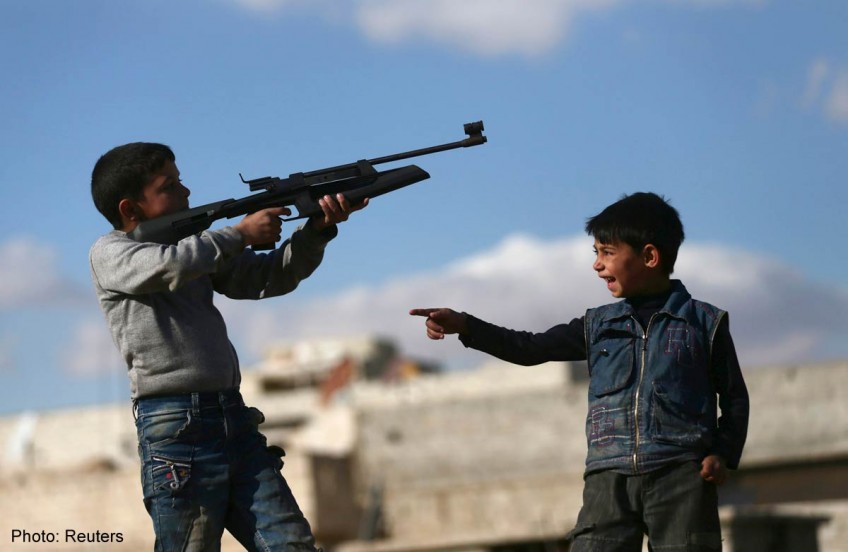Syria opposition turns to internal opponents

PARIS - The head of Syria's Western-backed political opposition is trying to ally with opposition groups based in Syria to boost its legitimacy and help revive peace talks that centre on a political transition in the country.
Khaled Khoja, who became president of the National Coalition for Syrian Revolutionary and Opposition Forces in January, told Reuters in an interview that the group's goal was still for President Bashar al-Assad to leave power, but that it was no longer a precondition to begin talks.
Despite having only tenuous links with fighters on the ground and seen as out of touch with the general population, the National Coalition remains one of the main parties in international discussions to end the almost four-year-old civil war that has killed more than 200,000 and displaced millions.
"We have a new strategy which is based on taking the initiative and launching a dialogue between the coalition and other parties that aren't part of it," Khoja said late on Wednesday after holding talks with UN Syria Envoy Steffan De Mistura.
"The ultimate objective is to have a general assembly that includes all parties who want a new Syria and have a common stance towards any negotiation process with the regime based on the Geneva 1 agreements."
There currently is no serious peace process in place. In the four years of fighting, two UN mediators have hosted high-profile conferences in Geneva, only to quit in frustration after they failed to yield meaningful progress.
Agreements reached in 2012 in Geneva, when a document approved by rival sides called for creating a transitional governing body with full executive powers, would be the basis for any talks.
Khoja, 49, said the key was to end the bloodshed. He said he had had some success after secret talks arranged by France 10 days ago with the domestic National Coordination Committee for Democratic Change.
The two sides agreed for the first time on a joint roadmap calling for a transitional governing body.
Khoja is also to hold talks with other internal groups, including Building the Syrian State, led by activist Louay Hussein, and others who could be deemed close to the government.
"We will continue until we have as many opposition parties and figures as possible," the Damascus-born doctor and businessman said.
"As the umbrella of the Syrian opposition, we insist on the goal of toppling Assad and the security services that serve him, but it is not necessary to have this condition at the beginning of the process," he said.
Khoja added, however, that it was vital any transition ensured the state apparatus remained.
In previous peace talks, Assad's camp has belittled the Western-backed opposition for its lack of legitimacy and representation.
His two main backers, Russia and Iran, have also pointed to the lack of a credible opposition and said Assad's departure could leave an even larger vacuum.
However, with the rise of Islamic State, there is a sense that the deteriorating security situation and fact that neither side can prevail militarily may create an opportunity to revive peace talks.
"We are at a time when talking again about finding a political solution is credible," a French diplomatic source said ahead of a meeting between Khoja and President Francois Hollande on Thursday.
"What makes us think that we could get there is that to a certain degree Islamic State is putting pressure on everybody and that everybody has to shift, including the Russians and Iranians."